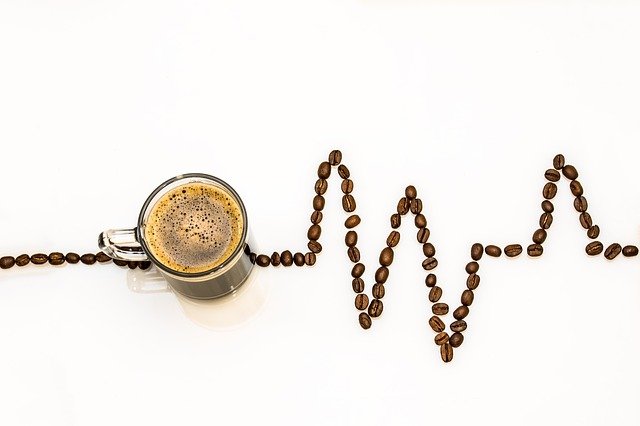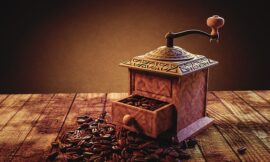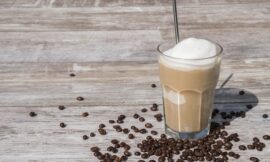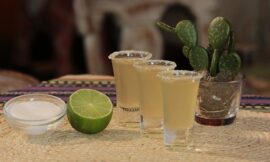3 Reasons To Make Coffee With Bottled Spring Water
- Because bottled water does not include any chalk or limestone, it improves the taste of your coffee by enhancing its flavor.
- Due to the neutral taste and purer nature of bottled spring water, the only thing you will taste is the smell of your coffee, not any of the other flavors that may be present in tap water. Bottled spring water is likewise more costly than tap water since it comes from a spring.
- It will take less time to descal your coffee maker since there will be no lime scale accumulation. This will save you time and money.
- Coffee is a morning pick-me-up, a mid-day pick-me-up, and a keep-on-keeping-on boost when you’re at your lowest point. It should be a pleasant experience to use a product that is such an important part of the lives of millions of people in the United States of America. Instead of focusing just on the good benefits that cream has on our emotions and energy levels, we should take time to enjoy the delightful aroma of rich, creamy cream as well.
- Using bottled spring water when brewing coffee is the only way we can get this level of taste in our cup of coffee. It is now possible to get nature-balanced water that brings out the best flavors of each coffee bean mixture.
3 Reasons To Make Coffee With Bottled Spring Water
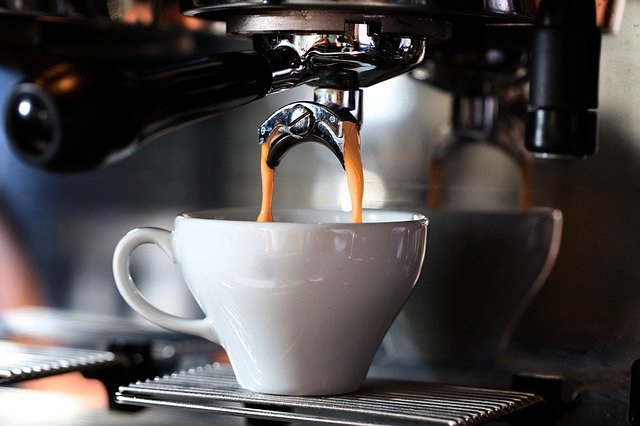 Vietnamese vs Thai Iced Coffee Differences
Best Coffee Books to Learn More About It
Vietnamese vs Thai Iced Coffee Differences
Best Coffee Books to Learn More About It
Fresh beans from a reputable roaster, ground immediately before brewing, is the fundamental principle of making excellent coffee. But have you given any thought to the amount of water you’re adding to those lovely beans? Having researched and identified the finest bottled water for coffee, we’ve compiled a list of our favorite selections. They are as follows:
- Volvic Natural Spring Water Crystal Geyser Alpine Spring Water Crystal Geyser Alpine Spring Water
- Saratoga Natural Spring Water Evian Natural Spring Water Saratoga Natural Spring Water
- Mountain Valley Spring Water (sometimes spelled Acqua) Natural Spring Water from Panna
As the experts at Balance Coffee demonstrate in this video, the chemistry of water has a significant influence on the flavor of coffee. Coffee requires the presence of the appropriate minerals at the appropriate concentrations. One alternative is to start with distilled water and then add minerals to obtain the optimal balance on your own timetable. To keep things easy, though, you may just use one of the six bottled water brands that have been reviewed in this article.
When it comes to making coffee, water is important.
We’ve all noticed differences in the flavor of our tap water from time to time. The amount of mineral content is indicated by the hardness and softness of the stone. During the treatment process, chemicals like as chlorine may be introduced. Even the composition and quality of a home’s plumbing infrastructure have an impact on the flavor of the water.
Making the greatest cup of coffee possible is more complicated than just hoping that the water you use tastes nice right out of the faucet.
The sound of running water coming from a kitchen sink faucet
You may use tap water if you want to take a risk, but for reasons we’ll explain later, you could be doing your coffee a disservice.
During the coffee extraction process, trace minerals in tap water bond with flavor molecules, and the pH of the water may change the flavor profile from sour to bitter. There are procedures, like as distillation or reverse osmosis, that can remove almost everything from your water and make it ultra-pure, but they may also yield coffee that is flat and lacking in flavor.
When it comes to brewing coffee, magnesium and calcium are the most crucial elements to have in proper balance. Magnesium aids in the extraction of coffee’s stronger flavors, particularly an organic component known as eugenol, by increasing the amount of caffeine extracted. Calcium brings out the deeper elements in the fragrance and adds to a creamy texture.
Another thing to consider is the pH of the water. For brewing coffee, the optimal pH is a neutral 7 with some wiggle area on either side of that number. More acidic water may allow for the extraction of more sensitive flavor components, but it also leads in a weaker extraction.
More alkaline water makes extraction easier, but it may also mask the flavor of the extract. As a result, when it comes to pH, taking the middle road is the best option.
Should you make coffee using tap water or bottled water?
There is no simple solution to this since the quality of tap water varies greatly from one location to another. Even the pipes that carry water to your faucet might contain trace minerals, which can cause water chemistry to differ from home to house within the same neighborhood!!
Chemicals such as chlorine and fluoride are often added to municipally treated water, sometimes in such high concentrations that you can smell and see the faint blue of a swimming pool in your bathtub. The smell of chlorine does not go well with coffee.
Since a result, the base mineral composition of your water will be determined by the aquifer in your location, as it is a function of the stone and soil through which the water has passed along its journey. Obtaining water reports or doing your own testing might provide you with valuable information about the kind of water that is supplying your property.
In order to make coffee, it may be best to start from a clean, regulated position, such as by combining your own minerals or purchasing filtered water.
There are two types of water: hard water and soft water.
Water that is considered “hard” is sometimes demonized, leading to the installation of water softeners to condition the water that is used for drinking, cooking, and bathing. The adjectives “hard” and “soft,” on the other hand, do not indicate a level of quality. They are referring to the amount of minerals present in the water.
A greater amount of minerals are present in hard water, including the calcium and magnesium ions noted above. Because it has a higher concentration of dissolved minerals, it may cause scale to accumulate on your dishes and equipment.
Scale is made up of mineral deposits that have the appearance of crusty white powder. In many cases, coffee-brewing machines come with instructions on how to “descale” the machine every few months, which involves using a particular solution to break down the deposits and wash them away.
It is necessary to descal the basin of a school water fountain because hard water leaves behind chalky scale deposits as it evaporates, necessitating the need for descaling. (Photo courtesy of Michael Yat Kit Chung | Flickr)
Soft water contains less minerals than hard water. Aquifers of hard, impenetrable stone provide naturally occuring soft water because they do not contain readily dissolved chemicals such as calcium.
Making your own coffee brewing water is simple.
An alternative method of obtaining balanced water that creates the greatest coffee and espresso is to start with ultra-pure water and add the minerals yourself. This approach gives you complete control over the chemistry of your water and enables you to experiment with different flavor profiles until you find one that you like.
The two most important minerals are sodium bicarbonate (baking soda) and magnesium sulfate, both of which are readily accessible (Epsom salts). These two chemicals are used in several “recipes,” each of which has a slightly different ratio of each. Each has its own set of advantages and disadvantages, and some are more suited to certain brewing procedures than others.
Remember, don’t be fooled by the fancy name: sodium bicarbonate is just baking soda, and it is a mineral that helps bring out the greatest flavors in coffee.
For example, harder water with more minerality is preferable for short brewing durations (such as espresso), but softer water will aid in preventing over-extracting in longer brewing techniques (such as latte art).
The disadvantage of mixing your own coffee-brewing water is that you must start with ultra-pure water that is devoid of minerals in order to achieve the desired results. A high-quality reverse osmosis filter will allow you to prepare your tap water on demand, without the need for additional equipment. Without distilled water from the grocery store, you will be forced to buy it.
What is the finest bottled water for making coffee?
In the event that you don’t feel like experimenting in your kitchen and are seeking for a reliable and easily available choice for your daily cup of coffee, bottled water may be the answer. You should keep in mind that, just as with tap water, not all bottled water is created equal. Some have a variety of minerals added for flavor, which may make your coffee taste worse, while others are very alkaline, which might result in a cup that lacks individuality and character.
Here are a few of our favorites:
Alpine Spring Water from the Crystal Geyser
Crystal Geyser Alpine Spring is bottled at seven natural springs in the United States that have been designated as protected areas. With a pH of 7, it constantly falls squarely in the middle of the neutral spectrum. While the minerality of water varies somewhat depending on the spring it comes from, this water is on the softer side when compared to others.
The total dissolved solids (TDS) concentrations vary between 90 and 110 milligrams per litre of water in the area.
The presence of similar quantities of magnesium and calcium helps to maintain equilibrium during brewing, while the low minerality prevents over-extraction during longer brewing processes.
Crystal Geyser Alpine Spring was established in 1990 and continues to operate as an independent, family-owned business. Investing in environmental measures that will both safeguard their product and assure the continued viability of the ecosystems that depend on these springs is a priority for the firm.
Natural Spring Water from Volvic
In addition to Volvic, the Clairvic Spring north of the Puy de Dôme in France produces Clairvic spring water, which is bottled as Volvic. The Puy de Dôme is a dormant volcano, and the bed of lava rock that surrounds it provides a high amount of natural filtration for water. The spring has a well-balanced mineral composition, with moderate levels of calcium and magnesium, as well as trace minerals and other elements. The total dissolved solids (TDS) in Volvic is 109 milligrams per litre.
Volvic has a comparable quantity of calcium and magnesium to Crystal Geyser Alpine Spring, which helps to maintain a balanced acidity and texture in the cup.
Volvic is actively involved in increasing water availability in Africa as well as developing healthy water drinks that are low in sugar, particularly for children. A number of environmental programs are supported by the parent firm Danone, which includes regenerative agriculture and carbon neutrality, as well as water stewardship and conservation.
Their annual three-day celebration, which celebrates the area’s unique sole source by allowing visitors to participate in sports and festivities, also serves to commemorate their accomplishment.
Natural Spring Water from Evian
Evian, which is also owned by Danone, is made from a number of natural springs on the south coast of Lake Geneva and is bottled. It has a little higher pH of 7.8 and a stronger minerality than Volvic, although it is not as acidic as it.
TDS is 300 milligrams per litre and it includes about three times the amount of calcium found in the same amount of magnesium. During the brewing process, the greater calcium content results in a more silky mouthfeel as well as deeper, creamier flavors.
Since 1859, they have operated as a publicly traded corporation. Danone, at the time known as the BSN company, purchased the brand in 1970. Evian, in addition to the many environmental measures undertaken by its parent company Danone, aspires to be completely carbon neutral by 2020 and to utilize only recycled packaging by 2025.
Natural Spring Water from Saratoga
Saratoga Natural Spring Water is a pH-balanced water that is bottled from natural springs in Saratoga Springs, New York. It has a low mineral content and a total dissolved solids (TDS) of 73 milligrams per litre, with calcium concentrations greater than magnesium. This is yet another kind of water that is on the softer side, making it more ideal for slower brewing techniques or for reducing the acidic flavors of espresso.
The Saratoga Spring Water business was formed in 1872 and continues operating to this day offering a range of still and sparkling bottled water products. They bottle the water in glass in a facility in New York that is near to the water source. In addition to being devoted to environmental sustainability, they also promote American-made goods as a corporation.
Mountain Valley Spring Water is a natural source of calcium and magnesium.
In 1871, Mountain Valley Spring Water was first commercially bottled in Hot Springs, Arkansas. Mountain Valley Spring Water is bottled in Hot Springs, Arkansas.
It has a total dissolved solids (TDS) of 221 and a higher pH of 7.7, making it one of the most difficult profiles on our list. This makes it an ideal option for quick brew techniques such as espresso and Aeropress, which need a quick brew.
Mountain Valley was the first bottled water to be widely distributed throughout the United States, and it has been served in the United States Senate since its founding in 1920. A diligent steward of the natural nature that surrounds the spring, the firm is committed to protecting the environment.
Natural Spring Water from Acqua Panna
Acqua Panna has a pH of 8.2 and a modest minerality, with a total dissolved solids (TDS) of 121 milligrams per litre. Water from a natural spring high in the Tuscany highlands is used to bottle this product, which is made in Italy. Although the minerality is well adjusted for extraction, some people may feel that the higher pH causes the coffee to taste more dull than others.
Beginning in 1880, commercial bottling of the spring water was established, and it eventually became the world’s first still water to be packaged in plastic. In recent years, the Acqua Panna brand has been acquired by San Pellegrino, a division of the Nestlé corporation. Water from the firm is so carefully crafted that they even recommend food and wine combinations for customers to enjoy together.
Recommendation from us
Crystal Geyser Alpine Spring bottled water is our top choice for the finest bottled water for coffee. Minerals are present in such quantities to generate a powerful flavor profile in coffee, but not in sufficient quantities to contribute to scale formation within sensitive equipment such as an espresso machine. There are many varieties to choose from, and it produces a fantastic cup of coffee.


